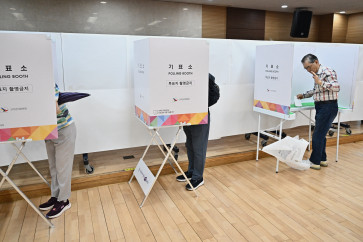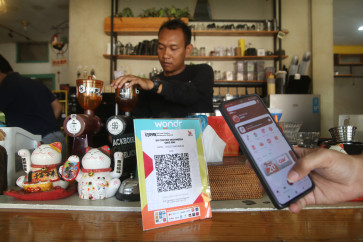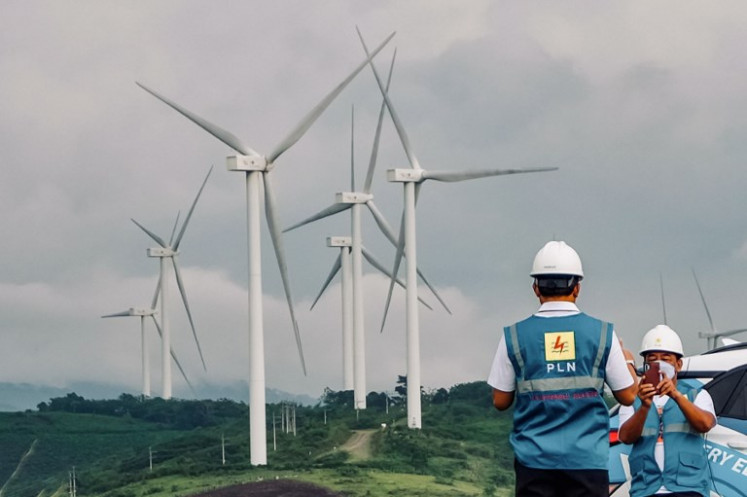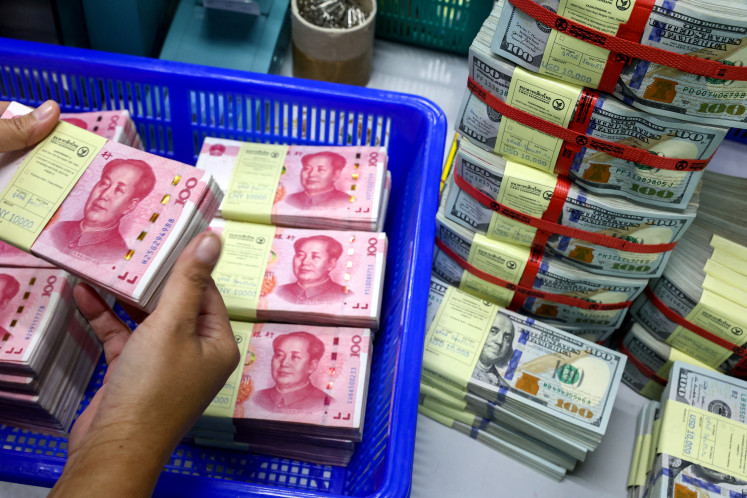Bakrie plantation in need of partner
Agriculture firm PT Bakrie Sumatera Plantations (UNSP) is looking to develop its oleo-chemical division and sell some of its high-cost assets in an effort to boost business performance this year
Change text size
Gift Premium Articles
to Anyone

A
griculture firm PT Bakrie Sumatera Plantations (UNSP) is looking to develop its oleo-chemical division and sell some of its high-cost assets in an effort to boost business performance this year.
It is currently seeking potential partners to help market its future oleo-chemical products, according to UNSP newly elected president director Muhammad Iqbal Zainuddin.
'We haven't begun producing even though the oleo-chemical plants are ready to operate. We just need to find a marketing partner because we do not have the expertise in it,' he said after an annual shareholders meeting on Monday.
At the moment, UNSP has two oleo-chemical plants, one in Kuala Tanjung and another in Tanjung Morawa, both in North Sumatra province.
The Tanjung Morawa plant is able to produce 45,000 metric tons of fatty acid and glycerin per year.
Meanwhile, the Kuala Tanjung plant consists of two facilities. The combined capacities of the two facilities reach 184,000 metric tons of fatty acid and glycerin, and 132,000 metric tons of fatty alcohol.
The company is expected to begin marketing the products in 2013 or next year at the latest, Iqbal said, adding that it had not determined its marketing coverage yet.
Aside from oleo-chemical, UNSP finance director Chandra Sekaran said its asset sales were expected to help the company post better performance in 2013. 'We are in the process of selling six plantations, amounting to around 30,000 hectares,' he said.
According to Sekaran, the plantations are relatively high costs with contribution less than 15 percent of the company's total revenue. The sales are estimated to be completed in October, he added, declining to reveal the amount of funds the company would receive.
As of last year, UNSP had 91,851 hectares of nucleus oil palm plantations in Sumatra and Kalimantan, about 11,438 hectares of plasma oil palm plantations in Sumatra and about 18,735 hectares of nucleus rubber plantations in Sumatra. Its total planted areas reached 122,024 hectares.
'We will likely see lower revenues by year-end due to lower [crude palm oil] sales, but we are certain we will be able to book profits, unlike last year,' Sekaran said.
UNSP suffered massive losses in 2012, with net losses reaching Rp 1.07 trillion (US$107.19 million), when a year before, it was still able to gain Rp 745.5 billion in net profits.
UNSP blamed the 2012 results on low palm oil business and what it claimed as 'higher non-cash expenses', such as 'impairment loss of fixed assets' and 'loss on written-off business development project'.
Its December 2012 financial report shows that its revenues declined 31.8 percent to Rp 2.48 trillion.
The company's liabilities also grew throughout 2012, up 14.7 percent to 11.07 trillion from a year ago, but its equities fell 12.6 percent to Rp 7.91 trillion. As of December 2012, its total assets amounted to Rp 18.98 trillion.
UNSP has not submitted its first quarter results to the Indonesia Stock Exchange (IDX). Its shares ended at Rp 51 apiece on Monday, down 3.8 percent from last Friday.
According to Investa Saran Mandiri analyst Kiswoyo Joe, UNSP's planned efforts will probably be able to turn things around for the company. However, he warned that it must make sure that it had enough raw material supplies to support the oleo-chemical plants.
'As far as I know, a majority of its plantations are still unplanted. If that is truly the case, they will have to source the raw materials from third parties and that will generate more costs,' he said.
Kiswoyo added that for UNSP, it would be better if the company would focus solely on palm oil, instead of expanding to other crops, such as rubber. 'Palm oil needs specific management. If one company is not yet able to handle it, its other businesses will be affected,' he said.









